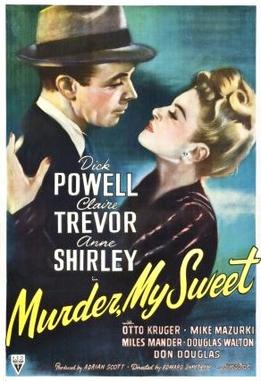 |
| Joan Carroll and Bill Robinson in One Mile From Heaven |
Cast: Claire Trevor, Sally Blane, Douglas Fowley, Fredi Washington, Bill Robinson, Joan Carroll, Ralf Harolde, John Eldredge, Paul McVey, Ray Walker, Russell Hopton, Chick Chandler, Eddie Anderson, Howard HIckman. Screenplay: Robin Harris, Alfred Golden, Lou Breslow, John Patrick, based on a story by Ben B. Lindsey. Cinematography: Sidney Wagner. Art direction: Bernard Herzbrun. Film editing: Fred Allen. Music: Samuel Kaylin.
In One Mile From Heaven, a reporter happens upon a Black woman who is raising a white child and says that the little girl is her own daughter. The reporter immediately sees it as a hot news item. It's an odd and distasteful premise for a movie, especially if, as in this case, the child is happy, well cared-for, and loves her mother, who's entirely capable of raising her. It's the mere fact of the racial disparity that sets Lucy Warren (Claire Trevor) on the course of exposing the relationship of Flora Jackson (Fredi Washington) and her putative daughter, Sunny (Joan Carroll), leading to the discovery of Sunny's birth mother, the wealthy (and white) Barbara Harrison (Sally Blane). It winds up with what's supposed to be a happy ending. That the movie is played as a sentimental comedy laced with musical numbers supplied by a tap-dancing Black policeman (Bill Robinson) only makes it seem odder. It could, after all, have been an indictment of nosy journalism, or a story of racial injustice, but instead it's a grab-bag of movie tropes, including a press room filled with anything-for-a-scoop reporters straight out of The Front Page (Lewis Milestone, 1931), and a thwarted prison escape that comes out of nowhere and has only a tangential relationship to the main plot. Allan Dwan handles all of this with his usual finesse, but is never quite able to make a coherent film out of it. This was Washington's last film before she retired from acting and devoted her life to civil rights activism. The movie, based on an actual case in Denver, serves as evidence why that activism was needed.



